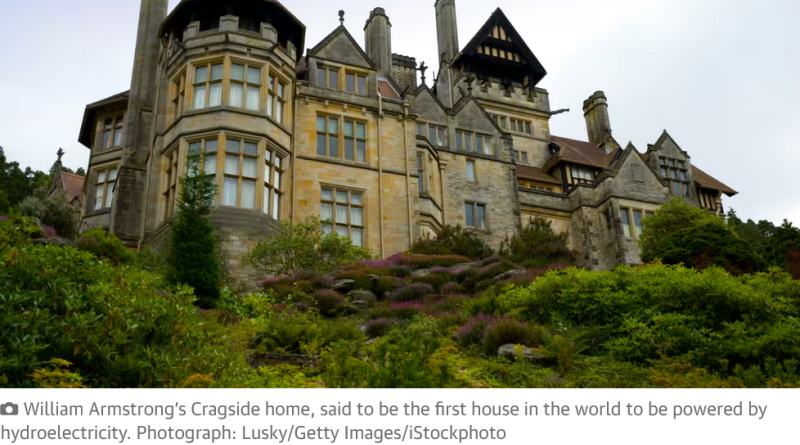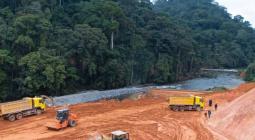William Armstrong: Victorian who built first hydroelectric-powered house

William Armstrong was a Victorian inventor and engineer who in 1870 created the world’s first hydroelectric power scheme, at his family home of Cragside, near Rothbury, Northumberland. It was run by water that ran down a steep slope from an artificial lake, driving a turbine and dynamo to generate electricity.
In 1880, Lord Armstrong used the hydroelectricity to light Cragside by powering incandescent bulbs invented by Joseph Swan. He also used it to run other inventions, such as an electric saw, fire alarms, buzzers for servants’ quarters and dinner gongs. Visitors to Cragside were astonished and it became known as “the palace of the modern magician”.
Apart from hydroelectricity, Armstrong pioneered hydraulic mechanisms, including ones that raised and lowered Tower Bridge, and he installed a hydraulic lift in Cragside.
He was also an environmentalist who realised fossil fuels could not be relied on indefinitely and that renewable forms of power generation, such as hydroelectric and solar, would be needed. In 1863 he made an astonishing prediction: that because coal “was used wastefully and extravagantly in all its applications”, Britain would cease to produce it within two centuries. Yet the genius and foresight of Armstrong are now largely forgotten.





